Believe it or not, how you decorate your home has an effect on how harmonious you feel in your own space. This is just one reason that residential interior design is important.
People the world over are so stressed that the World Health Organization has classified stress as the health epidemic of the 21st century. Does this resonate with you? Do you feel stressed out and overwhelmed?
Does coming home at the end of the day put you at ease? Does your home feel like a bastion of peace and harmony? Or does the clutter and clashing decor put you even more on edge?
Let’s take a look.

What you experience in the world around you each day has a profound effect on you and your health. Even something as simple as viewing certain colors can affect your mental health and change your mood.
The phenomenon is so strong that cities around the world are looking for ways to incorporate ‘green spaces’ and ‘blue spaces’ in their architecture to help improve the mental health of their populations. There is a certain element of being in nature that also contributes to the phenomenon, but the colors themselves also have a profound effect.
Does this mean that you should paint your home green and blue? Probably not, that might be a little strong. But it does mean that using these colors as accents or tasteful elements in your design can help to create a pleasing and relaxing environment.
That sounds like something you want to come home to, doesn’t it?
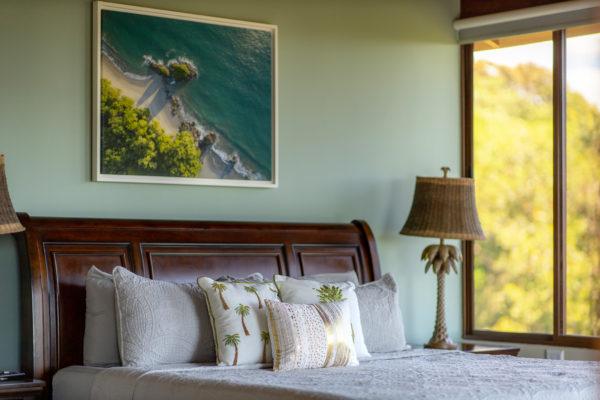
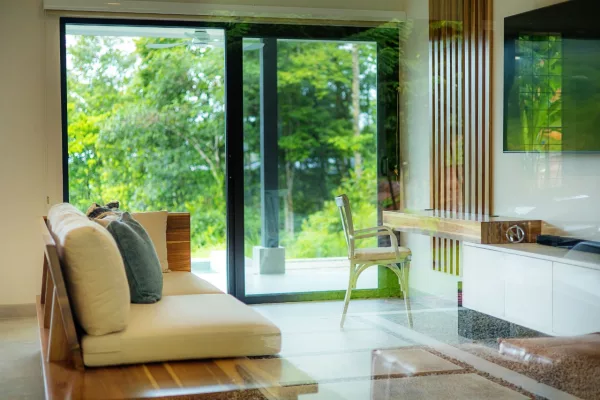
Of course, what you see isn’t the only way that your environment affects you. All five of your senses interact with the world around you and have an effect on your mental health.
When it comes to residential interior design every element is important. Lighting, especially natural lighting, is paramount to how your space looks, and how it can make you feel. Proper lighting can make a small space feel cozy and big windows with lots of natural light can help make it feel more expansive. Bad lighting can make it feel cramped and perhaps even dingy.
Use textiles to affect your senses of touch and sound. Curtains and carpeting help to mute street noise, making the interior of your home more peaceful. It also feels cozier when you don’t hear sounds echoing back at you after bouncing off of bare walls.
The fabric you choose for furniture, pillows, and the like affects your sense of touch. Comfort is key to creating a relaxing environment. Choose fabrics that feel pleasant to touch as well as pieces of furniture that offer adequate back support and are comfortable to sit on.
You can even affect the sense of smell by adding a bright bouquet of fragrant flowers or lighting your favorite scented candle when you walk in the door. Filling the air with an enjoyable scent will make you naturally want to breath deeper, which also helps to relax the body and let the tension fall away.
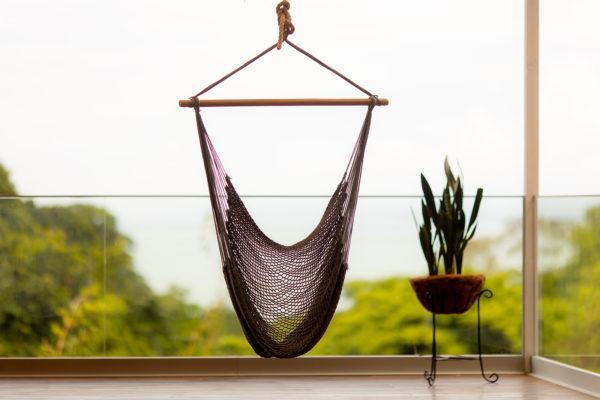
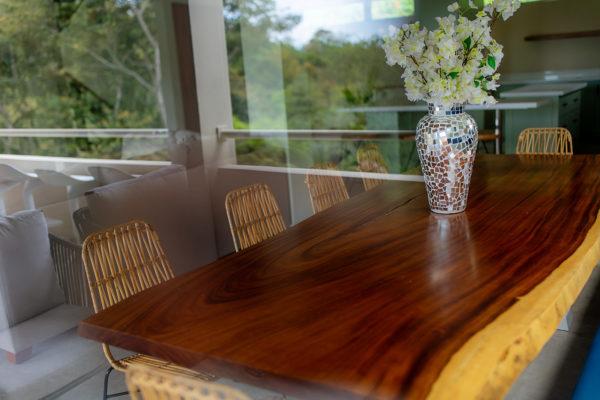
A good designer knows how to incorporate elements to positively affect the senses. A great designer knows how to choose the right elements for you.
Everyone has their own style. Decor that is beautiful to you may be downright ugly in someone else’s opinion. But when it comes to your home, the person you’re aiming to please is YOU!
Residential interior design is all about creating an environment that is beautiful and harmonious to you. Your home is your oasis. It is your escape from the world. It is the place you should be able to go to feel calm and safe.
A great interior designer knows that and will focus on creating that relaxing oasis for you.

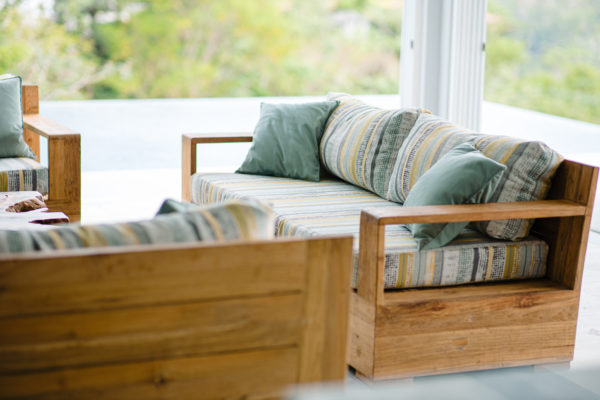
Here at Aurea Designs, my primary goal in residential interior design is to create a space that makes you feel cozy and comfortable. Your space should be beautiful and harmonious and positively affect all your senses.
Your home should be a place where the stressors of the day fall away when you walk through the door. You deserve to feel peaceful and calm in your own home. You’d be amazed how applying a few simple design principles can have such an impact on your mental health and well-being.
Don’t know where to get started? Feel free to browse my blog for tips or contact me for a consultation!
Contact
